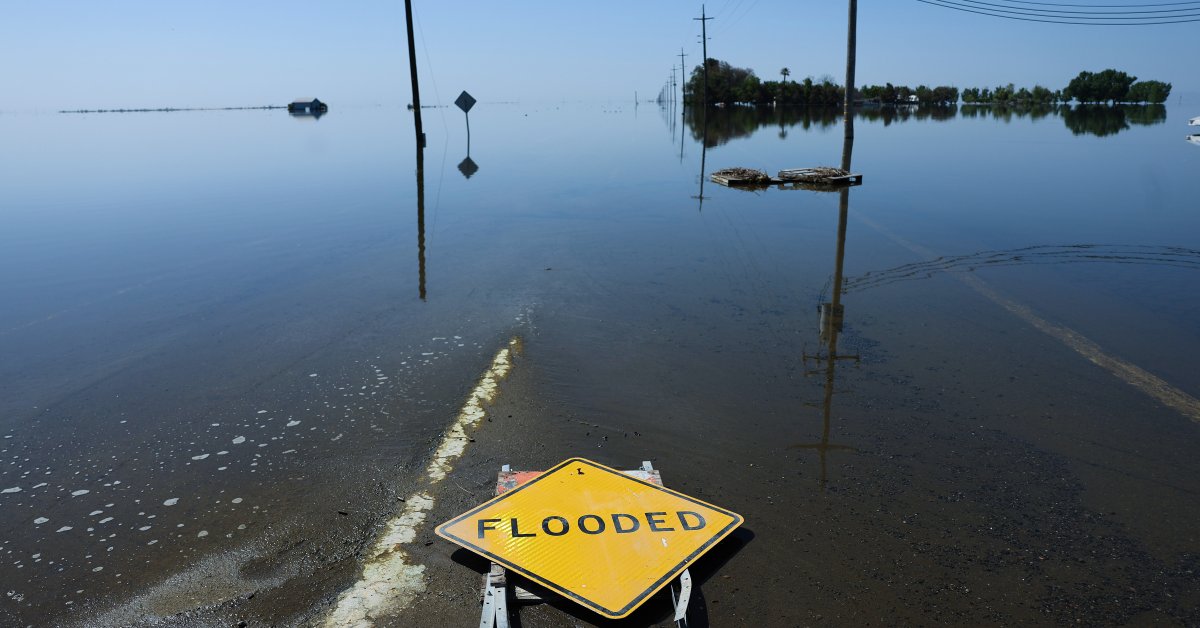More Frequent "Once-a-Century" Weather Events: Understanding The Shift In Climate Patterns

Welcome to your ultimate source for breaking news, trending updates, and in-depth stories from around the world. Whether it's politics, technology, entertainment, sports, or lifestyle, we bring you real-time updates that keep you informed and ahead of the curve.
Our team works tirelessly to ensure you never miss a moment. From the latest developments in global events to the most talked-about topics on social media, our news platform is designed to deliver accurate and timely information, all in one place.
Stay in the know and join thousands of readers who trust us for reliable, up-to-date content. Explore our expertly curated articles and dive deeper into the stories that matter to you. Visit Best Website now and be part of the conversation. Don't miss out on the headlines that shape our world!
Table of Contents
More Frequent "Once-a-Century" Weather Events: Understanding the Shift in Climate Patterns
The phrase "once-a-century storm" or "100-year flood" has become increasingly commonplace in recent years, raising alarm bells about the accelerating pace of climate change. These extreme weather events, once considered exceptionally rare, are now occurring with alarming frequency, forcing us to confront the harsh reality of a shifting climate and its devastating consequences. This isn't just about increased intensity; it's about a fundamental change in the probability of these events.
The Illusion of Rarity: Redefining "Once-a-Century" Events
The term "once-a-century" is a statistical simplification, representing a 1% annual probability. However, these calculations are typically based on historical data that no longer accurately reflects current climate conditions. As global temperatures rise, fueled by greenhouse gas emissions, the probability of extreme weather events – including heatwaves, droughts, floods, and wildfires – significantly increases. What was once a rare occurrence is becoming increasingly common, challenging our understanding of risk assessment and infrastructure planning.
Understanding the Underlying Mechanisms:
Several interconnected factors contribute to the increased frequency of extreme weather events:
- Rising Global Temperatures: Higher temperatures provide more energy to the atmosphere, leading to more intense and prolonged heatwaves, increased evaporation (and thus more intense rainfall), and stronger storms.
- Changes in Atmospheric Circulation: Climate change is disrupting established weather patterns, leading to more persistent high- and low-pressure systems, which can exacerbate droughts and floods respectively. The jet stream, a crucial atmospheric current, is also exhibiting more erratic behavior, contributing to extreme weather variability.
- Sea Level Rise: Rising sea levels exacerbate the impact of coastal storms and storm surges, leading to more extensive flooding and damage. Coastal communities are particularly vulnerable to this increasing risk.
- Ocean Warming: Warmer ocean waters fuel more intense hurricanes and typhoons, increasing their destructive potential. The warmer water provides the energy that intensifies these storms.
The Impact on Communities and Infrastructure:
The increased frequency of extreme weather events has profound consequences:
- Economic Losses: The damage caused by these events is staggering, leading to billions of dollars in losses annually. This includes damage to infrastructure, agricultural losses, and disruption to businesses.
- Displacement and Migration: Extreme weather events can force people to leave their homes, leading to displacement and migration. This can put a strain on resources and infrastructure in affected areas.
- Loss of Life: Sadly, extreme weather events often result in loss of life, highlighting the urgent need for improved disaster preparedness and mitigation strategies.
Adapting to a Changing Climate: Mitigation and Resilience
Addressing this challenge requires a multifaceted approach:
- Mitigation: Reducing greenhouse gas emissions through transitioning to renewable energy sources, improving energy efficiency, and adopting sustainable practices is crucial to slowing the pace of climate change.
- Adaptation: Investing in resilient infrastructure, improving early warning systems, and developing effective disaster response plans are essential for minimizing the impact of extreme weather events. This includes strengthening building codes, implementing flood defenses, and creating more robust water management systems.
- International Cooperation: Climate change is a global challenge that requires international cooperation to effectively mitigate its effects and build resilience. Sharing best practices, investing in research and development, and providing financial and technical support to vulnerable countries are essential.
The increased frequency of "once-a-century" weather events is a stark reminder of the urgent need to address climate change. Ignoring this reality will only lead to more devastating consequences. We need to act now – for the sake of our communities, our economies, and the planet itself. Learn more about climate change mitigation and adaptation strategies from reputable sources like the and .

Thank you for visiting our website, your trusted source for the latest updates and in-depth coverage on More Frequent "Once-a-Century" Weather Events: Understanding The Shift In Climate Patterns. We're committed to keeping you informed with timely and accurate information to meet your curiosity and needs.
If you have any questions, suggestions, or feedback, we'd love to hear from you. Your insights are valuable to us and help us improve to serve you better. Feel free to reach out through our contact page.
Don't forget to bookmark our website and check back regularly for the latest headlines and trending topics. See you next time, and thank you for being part of our growing community!
Featured Posts
-
 Battle Of Broadway 150 Craigs Repeat Performance After Berry Dq
Jun 01, 2025
Battle Of Broadway 150 Craigs Repeat Performance After Berry Dq
Jun 01, 2025 -
 Spanish Grand Prix 2024 Live Race Updates Piastris Pole And Key Moments
Jun 01, 2025
Spanish Grand Prix 2024 Live Race Updates Piastris Pole And Key Moments
Jun 01, 2025 -
 Honey Boo Boo And Patti Lupone A Public Diss And The Reason Behind It
Jun 01, 2025
Honey Boo Boo And Patti Lupone A Public Diss And The Reason Behind It
Jun 01, 2025 -
 Trinidad And Tobago Vs Ghana Live Unity Cup Match Updates
Jun 01, 2025
Trinidad And Tobago Vs Ghana Live Unity Cup Match Updates
Jun 01, 2025 -
 Senator Joni Ernst Issues Sarcastic Apology After Death Remarks
Jun 01, 2025
Senator Joni Ernst Issues Sarcastic Apology After Death Remarks
Jun 01, 2025
